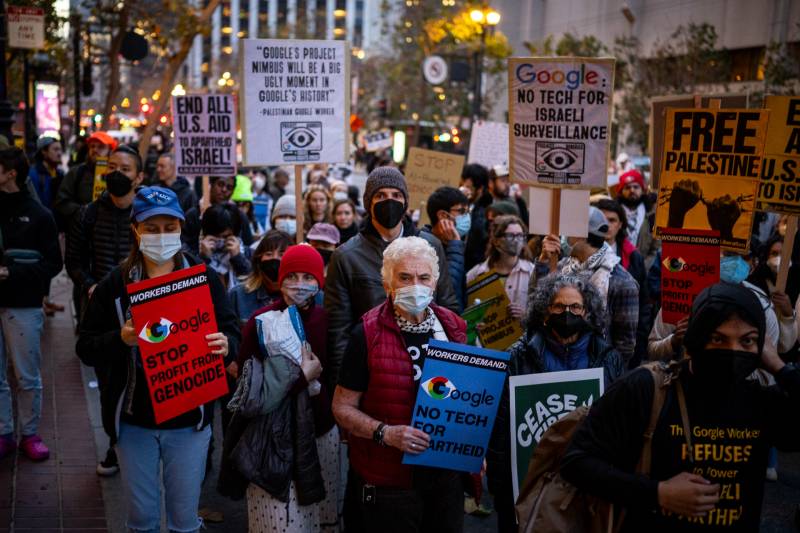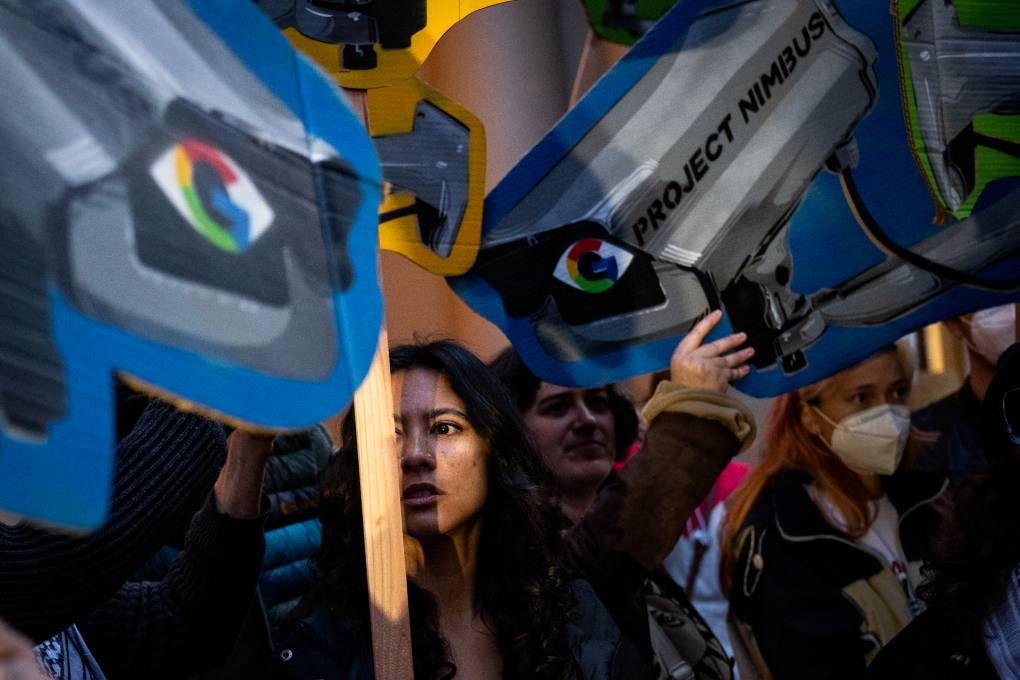At a protest outside Google offices in San Francisco last month, protesters called for Google to cancel a seven-year, $1.2 billion contract with Amazon and the Israeli government and military called “Project Nimbus.”
At the time, a Google spokesperson stated the Nimbus contract is “not directed at highly sensitive or classified military workloads relevant to weapons or intelligence services.” When asked in November about it in an interview with Bloomberg, CEO Sundar Pichai said, “Project Nimbus was an RFP [request for proposal] from Israel’s Ministry of Finance,” although the Israeli agency itself describes the project as “led by the Accountant General of the Ministry of Finance through the Government Procurement Administration together with the Israel National Digital Agency, the Israel National Cyber Directorate, the Ministry of Defense, the Israel Defense Force (IDF) and other partners in the government.”
“I view us as a partner to like-minded governments that share democratic values around the world,” Pichai said. “Be it skilling and educating their workforce, be it bringing more access to knowledge and information, and helping them build out their digital infrastructure, including AI. I think that’s the role. We don’t see it in a geopolitical context.”
Google also told KQED that the people organizing to kill Project Nimbus “largely don’t work at Google.” Most of the protesters that evening in December were not Google employees, but a few were, like software engineer Valerie Kuan.

